Globally, significant gains have been made to enhance the position of women across sectors and domains, and to improve gender equality. ZOA values women’s needs, aspirations, and challenges in all programme countries across the globe.
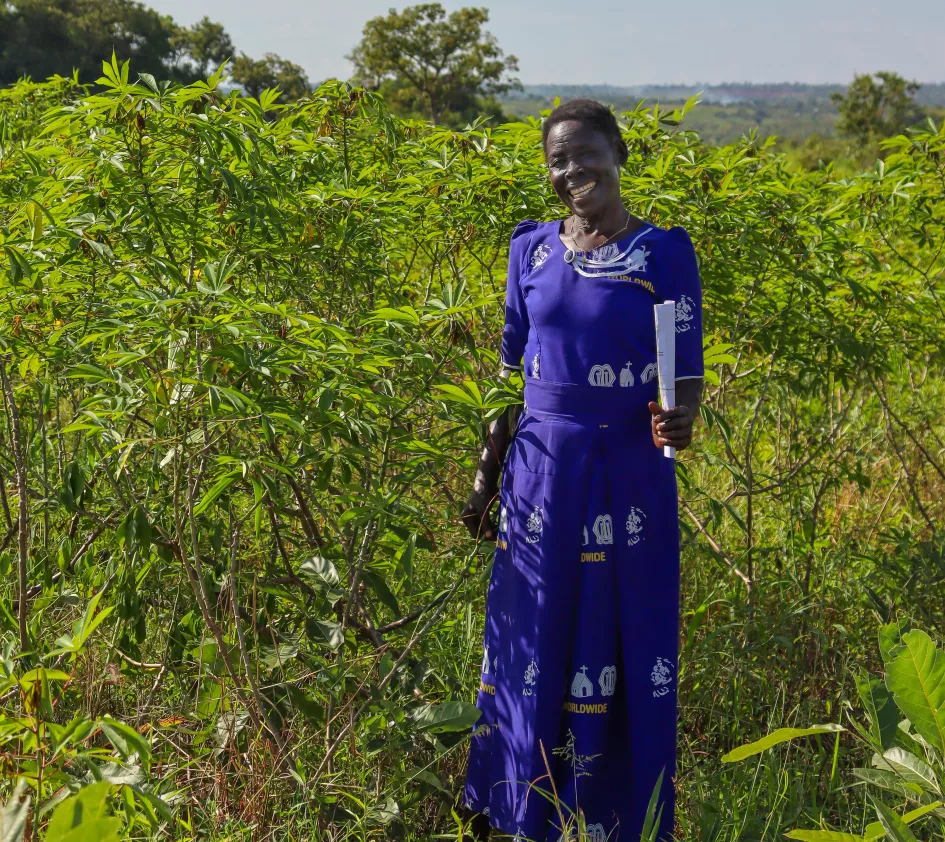
‘I am confident, I am human!’
“I am confident, I am human!” says Akech, a woman in South Sudan, after participating in a disability inclusion training offered by ZOA. The theme of this year's International Women’s Day on March 8 is ‘Accelerate Action’, emphasizes the importance of taking swift and decisive steps to achieving gender equality. At ZOA, we inspire inclusion in our work across all countries, recognizing and valuing the diversity of women’s needs, aspirations, and challenges to speed up gender equality.
focus at gender equality
ZOA values women's needs and aspirations
Ethiopia
In Ethiopia, we celebrate inclusion of inspiring Ethiopian women leaders. Maourdi, a young energetic woman, is a gender expert at the university of Haromaya, in Ethiopia's Oromia Region. For Maourdi, it has not been easy to get where she is now. Being visually impaired from childhood, she faced discrimination when wanting to pursue her education, as her parents and community believed children with visual disabilities are unable to be educated, and school was a waste of time.
Due to her perseverance and support from people close to her, she advanced her education. ZOA is proud to be collaborating with Maourdi and other partners in the We are Able! programme, that raises awareness about the barriers people with disabilities face in realizing their rights, while also advocating for more inclusiveness in schools and work sectors.
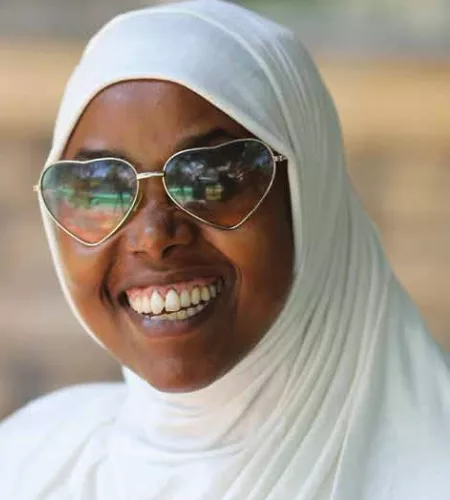
Uganda
In Uganda, Beatrice produces charcoal to prepare food and to sell to earn an income. She fled her own country because of war and has lived for several years in a settlement in West Nile. Recent legislation, however, prohibits tree cutting for environmental preservation. This largely affects livelihood opportunities for female refugees and women in host communities.
ZOA has supported Beatrice and other women to lead the way in sustainable charcoal production by teaching them new techniques and skills. Beatrice now uses Casamance kilns, which are faster and more efficient to produce charcoal, and teaches the method to other young individuals.
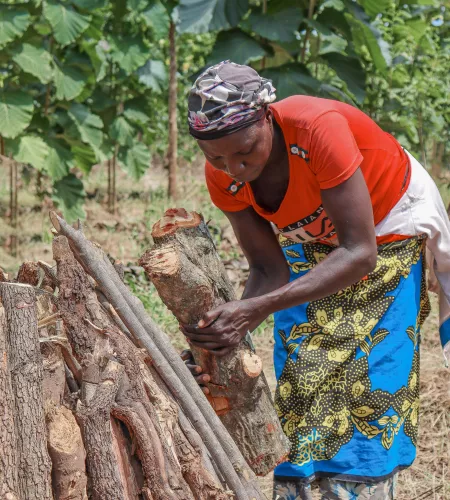
Yemen
In Yemen, there is an increasing desire of women to be more active in society. Traditionally, women are excluded and face social, political, and economic barriers. ZOA and the Khadija Foundation for Development (KDF) have united to support women and youth to gain their rightful place in society.
ZOA and KDF inspire inclusion by recognizing the importance of working together with diverse civil society organizations (CSOs) for promoting women’s and youth’s participation, inclusion, and rights. These CSOs provide technical, social, and financial training to decrease barriers to the labour market, increase access to credit, and create alliances between CSOs, Youth Initiatives (YI) and local communities to foster change.
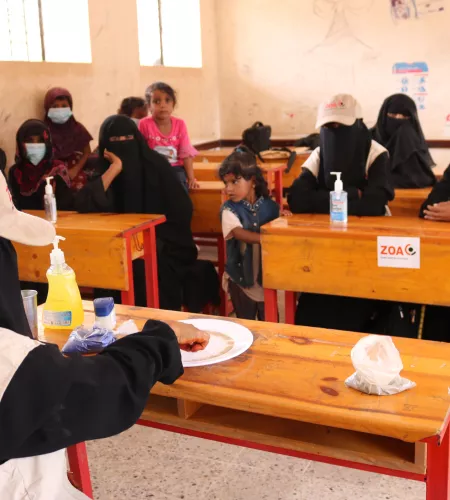
South Sudan
In South Sudan ZOA works closely together with Dorcas. ZOA and Dorcas facilitate disability inclusion trainings for women and girls with disabilities in the country. They are at greater risk of experiencing gender-based violence than men. Through these disability inclusion trainings, women and girls are supported in participating affordable income generating activities. This way, they are financially and economically empowered to be able to meet their basic necessities in life.
“The journey was thrilling,” says Akech, one the participants of this training in South Sudan. “I was motivated and encouraged when I noticed that there are other women with different disabilities. I realized that I belong to a family that I can identify with: a family of women with disabilities. I feel part of the community and no amount of words, insults, mockery can shake me! I am confident, I am human.”
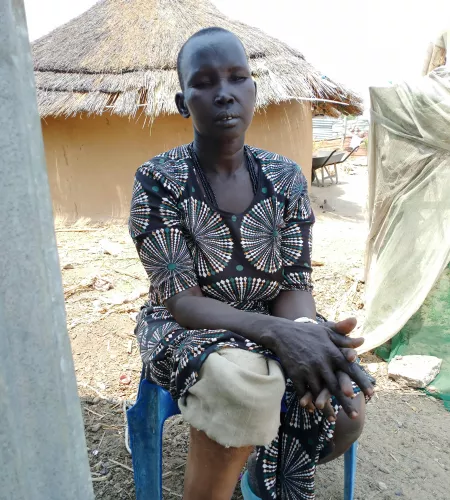
Ukraine
In Ukraine, ZOA supports women to rebuild their lives after they have lost everything due to the war. Tetiana lost her husband, house, and her livelihood. With support from ZOA, she was able to build a new home, which provided her with strength and optimism. The provision of a microgrant helped her to buy three sewing machines and to establish a production facility supporting a stable livelihood. Tetiana inspires inclusion by paying it forward and employing three women herself to provide them with a livelihood, including women with disabilities.
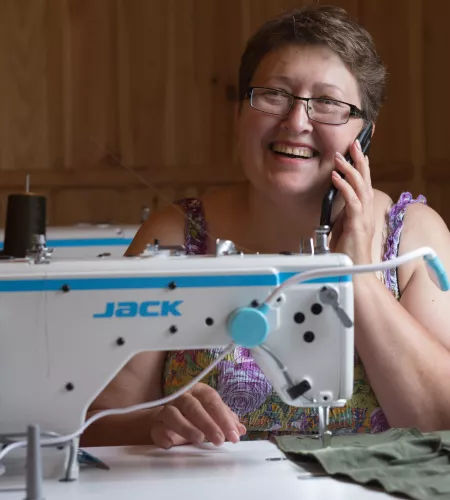
Sudan
In Sudan, farmers often use traditional agriculture methods with lower yields. ZOA supported Fatima and other female farmers to gain knowledge and skills to move from traditional to modern farming methods. This enhanced their production capacity and income, thereby contributing to their family self-sufficiency. Fatima established a Farmer Association, which evolved into the Salsabila Network providing support in obtaining agriculture inputs and in servicing and maintaining agriculture machinery.
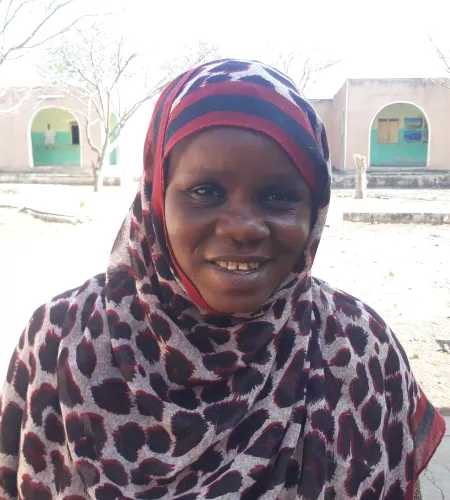
Syria
In Aleppo, Syria, ZOA stimulated women to participate in the recovery of their community after the earthquake in 2023 by joining the workforce that rehabilitated earthquake affected schools. The project highlighted the significant role of women as a part of the rehabilitation process and provided decent job opportunities for more than 15 women of the local community surrounding the affected schools (read more here: Women at work to rebuild schools in Syria).
Congo
In the Democratic Republic of Congo (DRC), ZOA supported Mukarazi: a resilient 26-year-old with a state diploma in pedagogy through the We are Able! programme. Despite her disability and initial unemployment struggles, she refused to succumb to societal pressures. The support elevated her self-confidence, morphing her into a social advocate actively engaging in community activities, meetings, and training sessions.
As the treasurer for the Disabled People's Organizations network in Idjwi territory, she champions inclusivity. With her newfound confidence and a modest income as an awareness-raiser, she launched a successful business, earning respect and integration within her community.
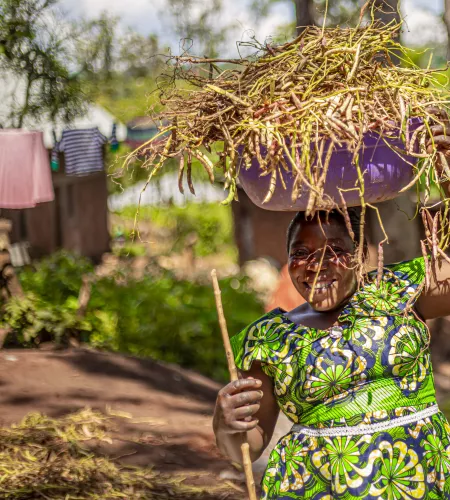
Myanmar
In Myanmar, ZOA supports women to sustain their small businesses. By helping them to improve the production, nutrition and market values of small-scale aquaculture, their family income increases. 75 women in Rakhine State received training on post-harvest handling of aquaculture products and reduction of post-harvest losses. The women learned and practiced how to hygienically prepare seven products (Dry fish, Fermented fish, Fish Cracker, Fish Ball, Fish Sausage, Salted Fish and Murukku), which they can now sell on the market.
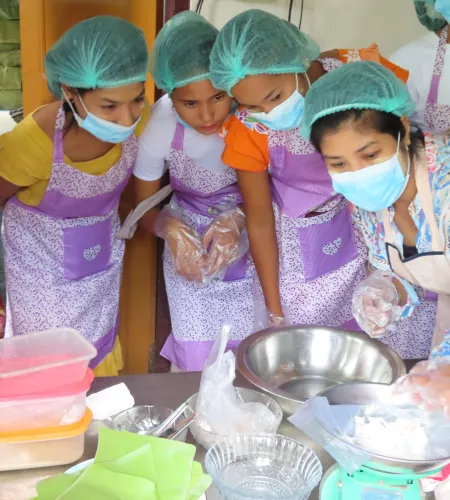
Nigeria
In Nigeria, ZOA provides digital skills trainings for women, hard to reach youth and persons with disabilities. When Noami, a 20-year-old woman with a disability in Maiduguri heard about this, she immediately decided that she wanted to be part of this opportunity. As a disabled person, she felt isolated from opportunities.
Within this project, ZOA aims to inspire inclusion by bridging the digital gender gap. Noami benefited from the training provided and now uses social media to grow her local cap-making business, boosting her income. “ZOA empowers people like me,” she says, “proving that the digital world can be a place for everyone.”
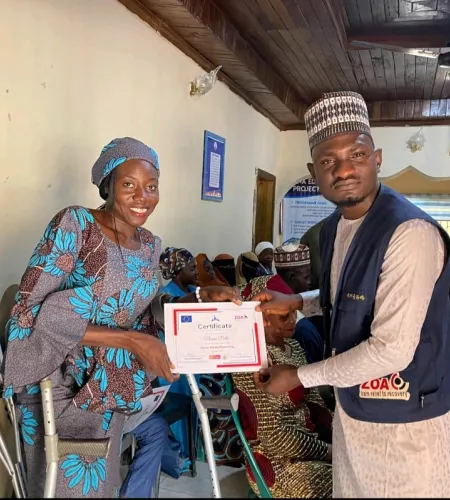
Colombia
In Colombia, ZOA aims to inspire inclusion by intentionally recruiting female staff and providing them with professional development opportunities tailored to their unique needs. When Karolay (25) applied with ZOA in 2022 for an internship position, she found out that she was pregnant. She decided to inform ZOA, despite common practices in Colombia in which organizations do not hire pregnant women.
ZOA offered her a contract and after three months of interning, Karolay went on her maternity leave. When she returned, she was offered a role as finance assistant. Based on her great performance, she later got promoted to finance official. Karolay likes the work atmosphere in the office the most. “We have a lot of laughs and harmony,” she says.
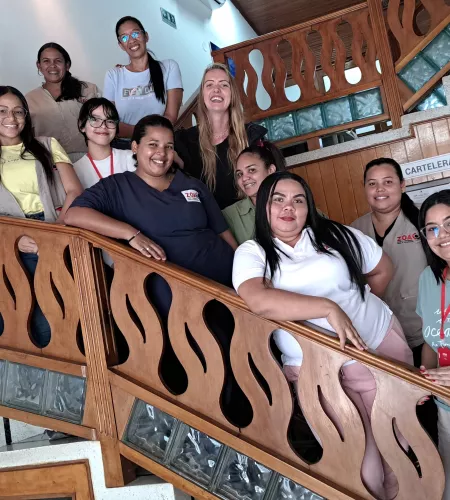
Burundi
In Burundi, Dorienne faced numerous hurdles in accessing land and securing agricultural livelihood opportunities as a woman and a returnee. She fled Burundi in 1993 due to conflict and returned in 2007. Her return was challenging. Burundi's cultural norms and legal system do not favour women's land ownership, making it difficult for them to invest in their agriculture businesses and support their families.
ZOA inspires inclusion by supporting Dorienne and other women by advocating for their rights and ensuring a land certificate with their name on it allowing women to invest in their land, contribute to the economy and support their families financially. Dorienne, as a proud landowner, outstanding farmer, and trader, has earned the respect and admiration of her peers and the community.
